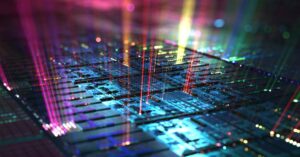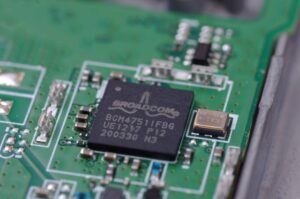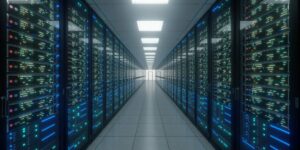
HPE Discover EMEA Now that every big tech maker is jockeying for a bite of the AI revenue pie, HPE is pitching to remain relevant by adopting what CEO supremo Antonio Neri calls an "AI native" strategy.
The claim is that HPE can support customers through every part of the AI model lifecycle, from training to tuning and inferencing. Part of this hinges on HPE owning Cray, and being able to supply the supercomputing tech necessary for training large AI models, which Neri claims is a differentiator that some HPE's rivals do not have.
HPE, like many others in the industry, sees the future as AI and more AI – although in its case delivered via the Greenlake platform. The company will need to convince the market it has the key pieces of the AI puzzle.
During his keynote at HPE's Discover event in Barcelona, Neri highlighted opportunities for AI use in enterprises, borrowing the hackneyed phrase that AI will be "the most disruptive technology of our lifetime."
Such statements are commonplace at the moment, following the explosion of interest in generative AI models caused by OpenAI and its ChatGPT chatbot based on a large language model.
"AI was seen as a promise somewhere on the horizon before 2022 and ChatGPT came and shook the foundations," Neri said.
"Now imagine a future where every business decision is enabled by AI. A future where predictive analytics drive new levels of activities to help you make better, faster decisions and predict trends about the new business opportunities," Neri said.
To back this up, Neri was joined on stage by Karl Havard, managing director of Taiga Cloud, a European company building a specialized cloud for AI processing.
Taiga is using HPE's Cray XD nodes, fitted with Nvidia H100 GPUs for its platform, the same hardware as HPE's own GreenLake for Large Language Models supercomputing service announced in June.
Havard said his company aims to sell democratize access to generative AI, so that startups and smaller enterprises can get the resources they need to train models, instead of having to build their own infrastructure or go to the big public clouds.
Agreements with other companies are also critical for HPE, Neri conceded, in particular Nvidia, given that its GPUs play a pivotal role in both HPE's supercomputing systems for AI and the enterprise solution for generative AI, the latter announced this week at Discover.
Nvidia's VP for Enterprise Computing, Manuvir Das, made an appearance during the keynote to explain that many enterprise users do not need to spend all the time and effort to build and train their own AI, but in many cases can pick up a pre-trained foundation model and just use it, or tune it to better match their requirements.
"With foundation models, someone has done all the work for you. They've done 99 percent of the work and if I can do the remaining 1 percent, now the model is mine," he explained.
Nvidia, however, is also a key supplier to HPE's rivals, notably Dell, which earlier this year launched its own platforms for AI inferencing and customization plus tuning of models. These likewise use Nvidia GPUs and its AI Enterprise suite software.
Despite all the attention and investment going to the training of AI models at the moment, HPE believes that inferencing is the bigger thing, as this ultimately represents the greater part of an AI model's lifecycle.
"The usage of AI happens when you are ready to deploy these models, and that happens on the inferencing side," Neri said in response to a question. "That can be in the datacenter, but I believe a lot of the inferencing will be to help with real time processing where the data is, where decisions need to be made faster."
This potential demand for new infrastructure to support AI inferencing could be just what HPE needs, following the recent 31 percent drop in revenue for its Compute business. This followed declines in reported revenue for the previous two quarters.
"The Compute business, it isn't going away, and will probably get another shot in the arm because of AI inferencing," Neri said in response to another question.
What if industry doesn't buy into promise of AI?
But with HPE betting big on AI, what happens if it does not turn out to be the huge inflection point many commentators are claiming?
Matt Harris, HPE's managing director for UK, Ireland, Middle East, and Africa, is adamant that it is going to fundamentally change the way businesses operate.
"I think generative AI in ChatGPT has brought AI to the fore of everyone's consciousness and thought process, but I don't think it's overstated. I think AI will infiltrate our lives, and already has done, if you think how internet search has improved over the years, or the use of chatbots talking to you to solve customer queries or problems, it's already pretty pervasive," Harris said. ®
- SEO Powered Content & PR Distribution. Get Amplified Today.
- PlatoData.Network Vertical Generative Ai. Empower Yourself. Access Here.
- PlatoAiStream. Web3 Intelligence. Knowledge Amplified. Access Here.
- PlatoESG. Carbon, CleanTech, Energy, Environment, Solar, Waste Management. Access Here.
- PlatoHealth. Biotech and Clinical Trials Intelligence. Access Here.
- Source: https://go.theregister.com/feed/www.theregister.com/2023/12/01/hpe_talks_up_ai_some/
- :has
- :is
- :not
- :where
- $UP
- 1
- 2022
- a
- Able
- About
- access
- activities
- Adopting
- africa
- AI
- AI models
- aims
- All
- already
- also
- Although
- an
- analytics
- and
- announced
- Another
- ARE
- ARM
- AS
- At
- attention
- away
- back
- barcelona
- based
- BE
- because
- before
- being
- believe
- believes
- Better
- Betting
- Big
- big tech
- bigger
- Borrowing
- both
- brought
- build
- Building
- business
- businesses
- but
- buy
- by
- Calls
- came
- CAN
- Can Get
- case
- cases
- caused
- ceo
- change
- chatbot
- chatbots
- ChatGPT
- claim
- claiming
- claims
- Cloud
- CO
- commentators
- Companies
- company
- Compute
- computing
- Consciousness
- convince
- could
- critical
- customer
- Customers
- customization
- data
- Datacenter
- decision
- decisions
- Declines
- delivered
- Dell
- Demand
- democratize
- deploy
- differentiator
- Director
- discover
- disruptive
- do
- does
- doesn
- don
- done
- drive
- Drop
- during
- Earlier
- East
- effort
- enabled
- Enterprise
- enterprises
- Ether (ETH)
- European
- Event
- Every
- everyone
- Explain
- explained
- explosion
- faster
- followed
- following
- For
- fore
- Foundation
- Foundations
- from
- fundamentally
- future
- generative
- Generative AI
- get
- given
- Go
- going
- GPUs
- greater
- happens
- Hardware
- Have
- having
- he
- help
- Highlighted
- hinges
- his
- horizon
- How
- However
- HTTPS
- huge
- i
- if
- imagine
- Impact
- improved
- in
- industry
- Inflection
- Inflection Point
- Infrastructure
- instead
- interest
- Internet
- into
- investment
- ireland
- isn
- IT
- ITS
- joined
- jpg
- june
- just
- karl
- Key
- Keynote
- Label
- language
- large
- launched
- levels
- lifecycle
- lifetime
- like
- Lives
- Lot
- made
- make
- maker
- managing
- Managing Director
- many
- Market
- Match
- Middle
- Middle East
- mine
- model
- models
- moment
- more
- most
- native
- necessary
- Need
- needs
- New
- nodes
- notably
- now
- Nvidia
- of
- on
- OpenAI
- operate
- opportunities
- or
- Other
- Others
- our
- out
- over
- overstated
- own
- owning
- part
- particular
- percent
- pick
- pieces
- pitching
- pivotal
- platform
- Platforms
- plato
- Plato Data Intelligence
- PlatoData
- Play
- plus
- Point
- potential
- predict
- predictive
- Predictive Analytics
- pretty
- previous
- probably
- problems
- process
- processing
- promise
- public
- puzzle
- queries
- question
- ready
- real
- real-time
- recent
- relevant
- remain
- remaining
- Reported
- represents
- Requirements
- Resources
- response
- revenue
- rivals
- Role
- s
- Said
- same
- says
- Search
- seen
- sees
- service
- shook
- shot
- side
- smaller
- So
- Software
- solution
- SOLVE
- some
- Someone
- somewhere
- specialized
- spend
- Stage
- Startups
- statements
- Strategy
- strike
- suite
- Supercomputing
- supplier
- supply
- support
- Systems
- T
- talking
- tech
- Technology
- that
- The
- The Future
- their
- These
- they
- thing
- think
- this
- this year
- thought
- Through
- time
- to
- Train
- Training
- Trends
- TURN
- two
- Uk
- Ultimately
- Usage
- use
- users
- using
- Ve
- via
- vp
- was
- Way..
- What
- when
- which
- will
- with
- Work
- year
- years
- you
- zephyrnet










